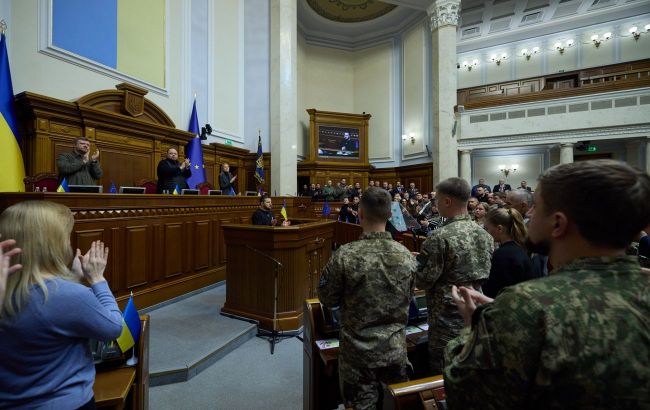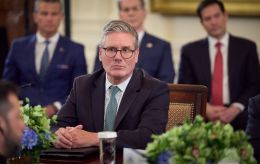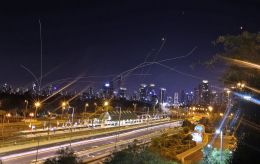Verkhovna Rada registered bill banning Russian territorial gains
 Draft law registered in the Verkhovna Rada (photo: Getty Images)
Draft law registered in the Verkhovna Rada (photo: Getty Images)
In the Verkhovna Rada, officials want to legislatively prohibit territorial concessions to Russia and deport Russians from Crimea, according to a draft resolution.
The draft resolution "On the statement of the Verkhovna Rada of Ukraine on the priority directions of Ukraine's state policy in the sphere of de-occupation, reintegration, and restoration of the Autonomous Republic of Crimea and the city of Sevastopol" was registered on August 18. One of its authors is the Chairman of the Verkhovna Rada, Ruslan Stefanchuk.
According to the draft resolution, the following provisions are proposed:
No territorial concessions
- The cessation of the war with Russia through territorial concessions is unacceptable;
- The restoration of Ukraine's territorial integrity within its internationally recognized state border, including the de-occupation of Crimea and Sevastopol, as well as ensuring state sovereignty, is a key condition for ending the war;
- The peace formula of the President of Ukraine should be the basis for ending the war, restoring territorial integrity, liberating all occupied territories of Ukraine, including Crimea, and establishing comprehensive, just, and sustainable international security to ensure the safety of the entire region.
Expulsion of Russians
- The Russian Black Sea Fleet must be withdrawn from the territory of Crimea in order to ensure security;
- All regular and irregular armed formations of Russia must be completely withdrawn from the territory of Ukraine;
- Russians who illegally moved to the territory of Crimea since 2014 will be expelled.
The fate of collaborators
- Ukraine does not recognize the Russian citizenship obtained automatically or forcibly by residents of the occupied Ukrainian territories;
- Ukrainian citizens who collaborated with the occupying authorities but did not commit serious crimes may be exempted from criminal liability.
The future of Crimea
- Crimea's future will involve the formation of military and military-civilian administrations, temporary state authorities, and the resumption of the work of representative bodies and local self-government after holding elections;
- The International Crimean Platform is expected to serve as a platform for ensuring security in the Azov-Black Sea region as a whole, to promote the de-occupation of Crimea, and to restore Ukraine's territorial integrity.
Additionally, the draft law includes provisions for the restoration of the activities of independent media and civil associations in the liberated Crimea, the Ukrainian education system, and the protection of the rights of indigenous peoples of Ukraine, including the Crimean Tatars.
The situation in Crimea
The recent increase in explosions and attacks in Crimea has raised security concerns in the region. These incidents range from attacks on Russian naval vessels to missile strikes and drone attacks on the peninsula and the Crimean Bridge.
For example, in early August, as part of a special operation by the Security Service of Ukraine (SSU), drones damaged the landing ship "Olenegorskiy Gorniak." The following day, drones also attacked a large oil tanker named SIG, which was carrying a significant amount of fuel.
More recently, there have been attacks by surface drones on the Crimean Bridge. These attacks resulted in the destruction of two spans of the bridge's structure.
The situation in Crimea remains tense and marked by periodic security incidents, which further contribute to the complex geopolitical dynamics in the region.
Additionally, on August 18, there were reports of gunfire and the sound of heavy-caliber weapons in Crimea. Smoke was also observed near Yevpatoria. These events contribute to the ongoing security concerns and tensions in the region.

